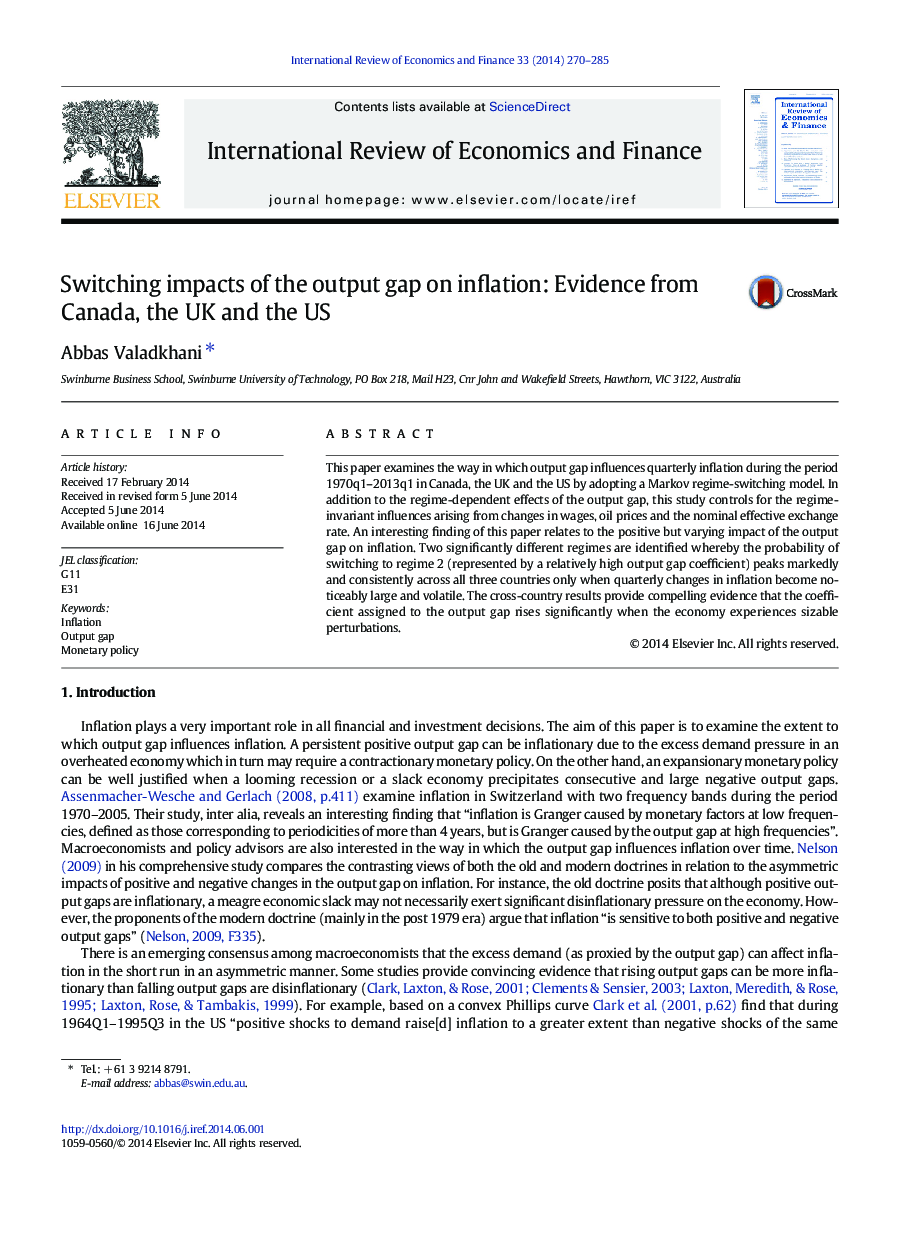| Article ID | Journal | Published Year | Pages | File Type |
|---|---|---|---|---|
| 5083494 | International Review of Economics & Finance | 2014 | 16 Pages |
â¢This paper examines effects of output gap on inflation in Canada, the UK and US.â¢A Markov chain process captures switching effects using quarterly data (1970-2013).â¢Output gap positively influences inflation across all 3 countries over time.â¢When inflation notably oscillates, output gap coefficient is more likely to switch.â¢Inflation is also determined by wages, oil price and the effective exchange rate.
This paper examines the way in which output gap influences quarterly inflation during the period 1970q1-2013q1 in Canada, the UK and the US by adopting a Markov regime-switching model. In addition to the regime-dependent effects of the output gap, this study controls for the regime-invariant influences arising from changes in wages, oil prices and the nominal effective exchange rate. An interesting finding of this paper relates to the positive but varying impact of the output gap on inflation. Two significantly different regimes are identified whereby the probability of switching to regime 2 (represented by a relatively high output gap coefficient) peaks markedly and consistently across all three countries only when quarterly changes in inflation become noticeably large and volatile. The cross-country results provide compelling evidence that the coefficient assigned to the output gap rises significantly when the economy experiences sizable perturbations.
